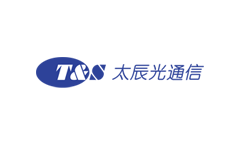Why Do 400G Optical Transceiver Prefer QSFP-DD?

Optical Transceiver has developed to 400G optical transceiver, and manufacturers are stepping up research and development to seize the hot spot. Many mainstream manufacturers choose QSFP-DD as the package of 400 optical transceivers, but why do 400G optical transceivers prefer QSFP-DD? Does it mean that QSFP-DD will be the main package of 400G optical transceivers in the future?
A good packaging must first support the types of transmission media and optical transceivers that are widely used in the networking industry. The transmission media include passive direct connection copper cable (DAC), multimode fiber (MMF) and single-mode fiber (SMF). Optical transceivers, active copper cables, and active optical cables include the 100Gb /s, 200Gb/s, and 400Gb/s series defined by Ethernet, Fibre Channel, and InfiniBand standards. Furthermore, the port density of the new package should be the same as that of the already deployed network. Finally, the backward compatibility of the new package with the already widely used QSFP package is critical for industry adoption. The QSFP-DD optical transceiver is a package that meets all the above conditions.
I. The development history of QSFP-DD optical transceiver
On March 21, 2016, the plan to develop QSFP-DD high-speed interface was started.
On September 19, 2016, version 1.0 of the QSFP-DD hardware specification containing the drawings was released.
On March 13, 2017, version 2.0 of the QSFP-DD hardware specification and QSFP-DD white paper were released.
On September 19, 2017, version 3.0 of the QSFP-DD hardware specification was released, along with the CS Connector specification.
On March 13, 2018, the QSFP-DD Thermal Design White Paper was released, addressing the issue of how to evaluate the thermal performance of the QSFP-DD module in a high-performance data center environment.
On August 30, 2018, it was announced that the QSFP-DD package had successfully passed the equipment interoperability test, and the QSFP-DD package optical transceiver was now ready for official use.
On 18 September 2018, version 4.0 of the QSFP-DD hardware specification and version 3.0 of the General Management Interface Specification for 8/16 Channel Placable Optical Modular were released.
So far, QSFP-DD MSA is relatively completed, and QSFP-DD optical transceivers of leading optical transceiver manufacturers were also listed in that period.
II. The application in the research and development of 400G optical transceiver
The QSFP-DD dual-density four-channel small pluggable package is a high-speed pluggable module package defined by the QSFP-DD MSA team as the preferred package for 400G optical transceivers, enabling data centers to effectively grow and expand cloud capacity as needed.
III. Characteristics of 400G QSFP-DD optical transceiver
The compatibility of the 400G QSFP-DD optical transceiver with the QSFP solution is one of its main advantages. The original QSFP28 module can still be used; you just need to insert another module.
In conclusion, the characteristics of the QSFP-DD optical transceiver package have unparalleled advantages in 400G applications (such as data center interconnection). It is expected that the world's leading ultra-large data center will soon deploy 400G, and QSFP-DD may become the mainstream package.
- +1 Like
- Add to Favorites
Recommend
- Optical Transceiver Interoperability and Compatibility
- Reflex Photonics Launches Midboard LightVISION Optical Transceiver with MPO Interface
- What is the Difference Between AOC and Optical Transceiver?
- The Difference Between 100G QSFP28 Fiber Optical Transceiver and 100G CFP4 Fiber Optical Transceiver
- Comparison between AOC (Active Optical Cables) and Optical Transceivers
- The Ultimate Guide to Fiber Optic Transceiver Modules
- LINK-PP 200G Optical Transceiver: A Versatile Solution Designed to Enhance the Performance and Scalability of Your Network Infrastructure
- What Are the Components of Internet of Things?
This document is provided by Sekorm Platform for VIP exclusive service. The copyright is owned by Sekorm. Without authorization, any medias, websites or individual are not allowed to reprint. When authorizing the reprint, the link of www.sekorm.com must be indicated.





























































































































































































































































































































































































































































































































































































































































































































































































































































































